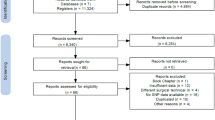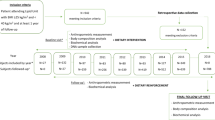Abstract
Background
Morbid obesity could last for a long period of life and increase the risk of morbidity as well as premature mortality. Although bariatric surgery benefits patients by quick weight loss, not all bariatric patients lose the same percentage of weight after a long time from surgery, which may be the result of diet, physical activity, and genetic components.
Objectives
In this study, we evaluated the association between the MC4R gene and both excess weight loss percentage (EWL%) and excess BMI loss percentage (EBMIL%) in a cohort of bariatric surgery patients after 6 and 12 months from surgery.
Methods
A total of 424 bariatric surgery patients who had participated in the Tehran Obesity Treatment Study and had weight measurements after 6 and 12 months from surgery were included in the study. Four SNPs in the MC4R gene were selected for evaluating the associations.
Results
We found that rs17773430 had a significant effect on both EWL% and EBMIL%, especially after 12 months of bariatric surgery. Furthermore, three other SNPs, rs17782313, rs476828, and rs11152213, did not show any significant association with EWL% and EBMIL%.
Conclusion
This study was the first to report on the association of rs17773430 with both EWL% and EBMIL% in a cohort of patients after bariatric surgery. We found that weight loss after surgery is influenced by genetic factors, and there were significant differences between the distribution of EWL% and EBMIL% in morbid obese bariatric patients who have two minor alleles of the rs17773430 and other SNPs.



Similar content being viewed by others
References
Sjöström L, Narbro K, Sjöström CD, et al. Effects of bariatric surgery on mortality in Swedish obese subjects. N Engl J Med. 2007;357(8):741–52.
Hainer V, Stunkard A, Kunešová M, et al. A twin study of weight loss and metabolic efficiency. Int J Obes. 2001;25(4):533.
Sun X, Li P, Yang X, et al. From genetics and epigenetics to the future of precision treatment for obesity. Gastroenterol Rep. 2017;5(4):266–70.
Rottembourg D, O’Gorman CS, Urbach S, et al. Outcome after bariatric surgery in two adolescents with hypothalamic obesity following treatment of craniopharyngioma. J Pediatr Endocrinol Metab. 2009;22(9):867–72.
Adan R, Tiesjema B, Hillebrand J, et al. The MC4 receptor and control of appetite. Br J Pharmacol. 2006;149(7):815–27.
Aslan I, Ranadive SA, Ersoy BA, et al. Bariatric surgery in a patient with complete MC4R deficiency. Int J Obes. 2011;35(3):457.
Barzin M, Hosseinpanah F, Motamedi MA, Shapoori P, Arian P, Daneshpour MA, et al. Bariatric surgery for morbid obesity: Tehran Obesity Treatment Study (TOTS) rationale and study design. JMIR research protocols. 2016;5(1).
Daneshpour MS, Fallah M-S, Sedaghati-Khayat B, et al. Rationale and design of a genetic study on cardiometabolic risk factors: protocol for the Tehran Cardiometabolic Genetic Study (TCGS). JMIR research protocols. 2017;6(2):e28.
Reinhold R. Critical analysis of long term weight loss following gastric bypass. Surg Gynecol Obstet. 1982;155(3):385–94.
Javanrouh N, Daneshpour MS, Soltanian AR, Tapak LJG. Kernel machine SNP set analysis provides new insight into the association between obesity and polymorphisms located on the chromosomal 16q.12.2 region: Tehran Lipid and Glucose Study. 2018;658:146-51.
Wu MC, Maity A, Lee S, Simmons EM, Harmon QE, Lin X, et al. Kernel machine SNP-set testing under multiple candidate kernels 2013;37(3):267-275.
Lee SS, Lee MSS. Package ‘SKAT’. 2017.
Coordinators NR. Database resources of the national center for biotechnology information. Nucleic Acids Res. 2016;44(Database issue):D7.
Resende CMM, Durso DF, Borges KBG, et al. The polymorphism rs17782313 near MC4R gene is related with anthropometric changes in women submitted to bariatric surgery over 60 months. Clin Nutr. 2018;37(4):1286–92.
Elkhenini H, New J, Syed A. Five-year outcome of bariatric surgery in a patient with melanocortin-4 receptor mutation. Clin Obes. 2014;4(2):121–4.
Klampfer L, Huang J, Sasazuki T, et al. Inhibition of interferon γ signaling by the short chain fatty acid butyrate11Montefiore Medical Center New Research Initiative Award to LK and the American Cancer Society Institutional Research Grant to LK (ACS IRG# 98-274-01), UO1 CA88104 (to LA), and P30-13330 from NCI. Mol Cancer Res. 2003;1(11):855–62.
Goergen M, Manzoni D, De VB, et al. Influence of obesity-susceptibility loci (MC4R and INSIG2) on the outcome of weight loss and amelioration of co-morbidity in obese patients treated by a gastric-bypass. Bulletin de la Societe des sciences medicales du Grand-Duche de Luxembourg. 2011;2:7–24.
Melka MG, Bernard M, Mahboubi A, et al. Genome-wide scan for loci of adolescent obesity and their relationship with blood pressure. J Clin Endocr Metab. 2012;97(1):E145–E50.
Acknowledgments
The authors would like to thank the hospital staff and the Tehran Obesity Center coordinators that took part in this research. Also, special thanks to deCODE genetic company for doing the genetic screening. The authors wish to acknowledge Dr. Forough Ghanbari for the critical editing in English grammar and the syntax of the manuscript.
Funding
This work was funded by the Research Institute for Endocrine Sciences, Shahid Beheshti University of Medical Sciences, Tehran, Iran.
Author information
Authors and Affiliations
Corresponding authors
Ethics declarations
Conflict of Interest
The authors declare that they have no conflict of interest.
Statement of Informed Consent
Informed consent was obtained from all individual participants included in the study.
Human Rights/Ethical Approval
This study has been approved by the Human Research Review Committee of the Endocrine Research Center, Shahid Beheshti University of Medical Sciences, No. 2ECRIES 93/03/13.
Additional information
Publisher’s Note
Springer Nature remains neutral with regard to jurisdictional claims in published maps and institutional affiliations.
Rights and permissions
About this article
Cite this article
Javanrouh, N., Khalaj, A., Guity, K. et al. Presence of CC Genotype for rs17773430 Could Affect the Percentage of Excess Weight Loss 1 Year After Bariatric Surgery: Tehran Obesity Treatment Study (TOTS). OBES SURG 30, 537–544 (2020). https://doi.org/10.1007/s11695-019-04211-w
Published:
Issue Date:
DOI: https://doi.org/10.1007/s11695-019-04211-w




